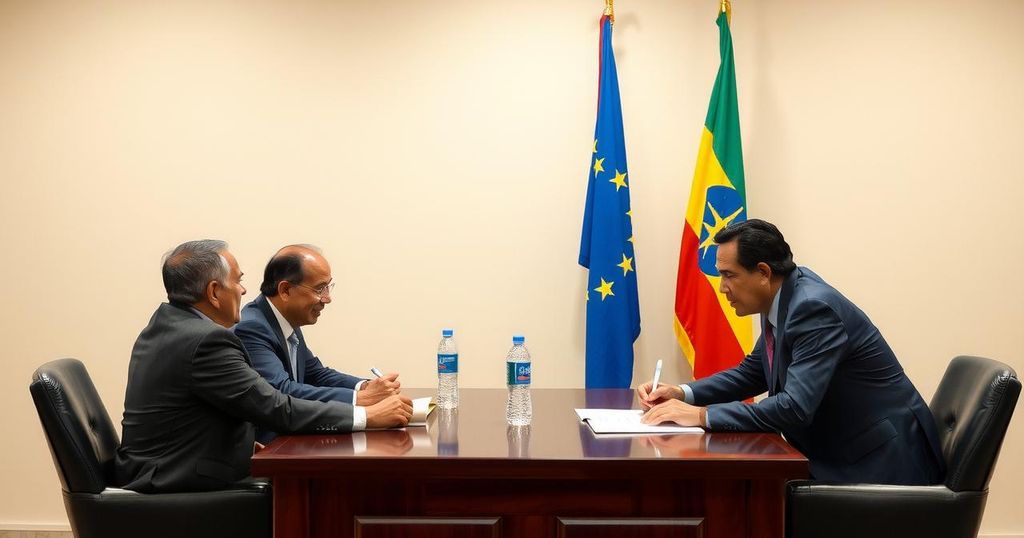The peace agreement between Eritrea and Ethiopia, signed in 2018, continues to receive international praise, highlighted by Micronesia’s President Peter Christian during the UN General Assembly. He expressed hope for global peace initiatives, urging world leaders to resolve conflicts akin to the situation in the Korean Peninsula, while recognizing the ongoing humanitarian suffering caused by wars.
The peace agreement between Eritrea and Ethiopia has garnered international acclaim, receiving endorsements from various global leaders, including the President of the Federated States of Micronesia, Peter Christian. During his address to the United Nations General Assembly, President Christian highlighted the significance of the Ethio-Eritrean peace process and expressed optimism for peace initiatives worldwide. He stated, “To wish for peace is global. It has no boundaries. Micronesia is encouraged by the peace reached by Eritrea and Ethiopia, and we wish the people of those countries the very best.” This peace deal concluded a protracted conflict that had persisted for decades following a severe border conflict, culminating in a formal agreement signed in July 2018 by Ethiopian Prime Minister Abiy Ahmed and Eritrean President Isaias Afwerki. The leaders have recently reaffirmed their commitment to peace in a subsequent agreement signed in Jeddah, for which they were honored with gold medals by Saudi officials for their dedication to unity. The President of Costa Rica also commended this achievement, reflecting a broader sentiment of appreciation for the resolution of hostilities between the two nations. In addition to discussing the Eritrea-Ethiopia agreement, President Christian emphasized the importance of peace efforts in the Korean Peninsula. He urged world leaders to contribute to relief efforts in areas afflicted by conflict and to prioritize the consolidation of peace initiatives. He lamented the humanitarian crises faced by people trapped in ongoing wars and called for more decisive actions from prominent leaders to alleviate these tragedies, suggesting that the perpetuation of such conflicts might serve obscure political or economic interests.
The peace accord between Eritrea and Ethiopia is a pivotal development in African diplomacy. It marked the end of a decades-long state of hostility following a brutal border conflict that lasted from 1998 to 2000. The July 2018 agreement has been celebrated for fostering reconciliation and stability in a region long plagued by discord. The involvement of international figures and organizations highlights the global implications of such peace efforts, as they establish a paradigm for resolving conflicts elsewhere. The recognition of this peace deal during high-level international forums like the UN General Assembly attests to its significance in promoting global peace and security.
In summary, the peace agreement between Eritrea and Ethiopia represents not only a crucial resolution to a long-standing conflict but also serves as an exemplar for other regions grappling with strife. Leaders such as President Christian of Micronesia have underscored the necessity of peace in troubled areas while expressing hope for similar resolutions in ongoing global conflicts. The international community’s acknowledgment of these peace efforts emphasizes the collective responsibility to address humanitarian crises and promote stability across the world.
Original Source: www.africanews.com






